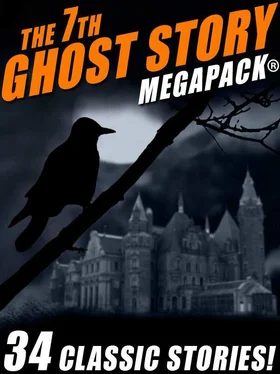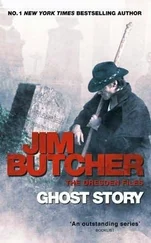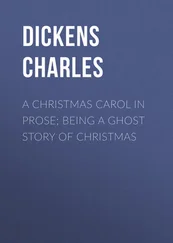“At eight o’clock the next evening I sat in the same place with my work just finished and the chart lying rolled up on the table before me, when suddenly the dog’s dismal howl rang through the ship, and looking up I saw those same legs coming down the after companion. My hair fairly stood on end, and yet today surely I was wide awake. I had only smoked one pipe all day, and had not touched a drop of liquor. The same wan, emaciated figure walked into the cabin, glanced inquiringly and appealingly at me, and again there spread over his face that look of utter disappointment as if he had sought something and failed to find it, and again he disappeared. I rushed on deck to the mate and told him all I had seen during the last two nights; but he made light of it, and assured me I had been asleep or smoking too much. He did not like to suggest that I had been drinking. Still, I could see that the thought that came into his mind was ‘The old man has seen ’em again.’ I gave up trying to convince him, but requested that the next night, from 8 to 8.30, he should sit with me in the cabin.
“How the next day passed I cannot tell. I only know that my thoughts never left that ghostly visitant, and somehow I felt that the evening would reveal something to me and the spell be broken. I made up my mind I would speak to the thing, whatever it was, and I felt a sort of security in the presence of the mate, who was a daring fellow and feared neither man nor the devil. Neither rum nor tobacco passed my lips during the next day, and eight o’clock found the mate and I sitting in the cabin, and this time the chart lay open on the table beside us. Just as eight bells struck the dog’s premonitory wail sounded, and looking up we both saw the figure descending the cabin stairs. We both seemed frozen to our seats, and the strange weirdness of the whole proceeding cast the same spell over the mate and me alike, and we were both unable to move or speak. Slowly the figure proceeded into the cabin and glanced around without a word, but with the same expectant look on his face. His form was even more wasted, his cheeks sunken and his eyes seemed almost out of sight so deeply were they set in their sockets. As his eye fell on the open chart a look of supreme joy fairly irradiated his features, and advancing to the table he placed one long, bony finger on the chart, held it for a moment and then again disappeared from our sight.
“For five minutes after he had left us we sat speechless. Then I managed to say: ‘What do you think of that, Mr. Morris?’ ‘My God! sir, I don’t know—it’s beyond me.’ Then my eyes fell on the open chart and there where the finger had been was a tiny spot of blood, exactly on the point of longitude 63 degrees west and latitude 37 degrees north. We were then only about fifty miles distant from that position, and immediately there came to me the determination to steer the ship there; so I laid her course accordingly, and posted a lookout in the crow’s nest. At five o’clock in the morning, just as the east began to grow gray, the lookout called out: ‘Boat on the lee bow,’ and as we came up to it we found four men in it—three dead and one with just a remnant of life left in him. We sewed the three bodies in canvas and buried them in the ocean, and then gave all our attention to restoring life to the poor emaciated frame, which, I then recognized, was the very man who for three successive nights had visited me in my cabin.
“By judicious and careful nursing life gradually came back to him, and in four days’ time he was able to sit up and talk with me in the cabin. It seems he commanded the ship Promise, and she had taken fire and been destroyed, and all hands had to take to the boats. Ten were in the boats at first, but their food had given out, and one by one he had seen them die, and one by one he had cast the bodies overboard. Finally he lost consciousness and knew not whether his three remaining companions were dead or alive.
“Then he said he seemed in a dream to see a ship and tried to go to her for help, but just as he would be going on board of her something would seem to keep him back; three times in his dreams he tried to visit this ship, and the last time there seemed to come to him a certain satisfaction, and he felt that he had succeeded in his object. Turning to my table, he said: ‘Let me take your chart; I’ll show you just where we were.’
“‘Stop,’ said I, ‘don’t take that chart, it is an old one and all marked over. Mark your position on this new one.’ He took my pencil and knife, and carefully sharpened his pencil. Then, taking my dividers, he measured his latitude and longitude and placed a pencil dot at a point on the clean chart. As he lifted his hand he said: ‘Oh, excuse me, captain, I cut my finger in sharpening the pencil and have left a drop of blood on the chart.’
“‘Never mind,’ said I, ‘leave it there.’ And then I produced the old chart and there, in an exactly corresponding place was the drop of blood left by my ghostly visitor.”
Then looking steadily into my face the mate solemnly added: “I can’t explain this, sir, perhaps you can; but I can tell you on my honor it is God’s own truth that I have told you.”
THE GHOST OF WASHINGTON,
by Anonymous
Taken from Twenty-Five Ghost Stories (1904).
It was early on Christmas morning when John Reilly wheeled away from a picturesque little village where he had passed the previous night, to continue his cycling tour through eastern Pennsylvania. Today his intention was to stop at Valley Forge, and then to ride on up the Schuylkill Valley, visiting in turn the many points of historical interest that lay along his route. Valley Forge, his road map indicated, was but a short distance further on. All around him were the hills and fields and roads over which Washington and his half-starved army had foraged and roamed throughout the trying winter of 1777-8—one hundred and twenty-six years ago.
It was a beautiful Christmas day, truly, and, as he wheeled along, young Reilly’s thoughts were almost equally divided between the surrounding pleasant scenery and the folks at home, who, he knew very well, were assembling at just about the present time around a heavily laden Christmas tree in the front parlor. The sun rose higher and higher and Reilly pedaled on down the valley, passing every now and then quaint, pleasant-looking farmhouses, many of which, no doubt, had been built anterior to the period which had given the vicinity its history.
Arriving, finally, at a place where the road forked off in two directions, Reilly was puzzled which way to go on. There happened to be a dwelling close by. Accordingly he dismounted, left his wheel leaning against a gate-post at the side of the road, and walked up a wretchedly flagged walk leading to the house, with the idea of getting instructions from its inmates.
Situated in the center of an unkempt field of rank grass and weeds, the building lay back from the highway probably one hundred and fifty feet. It was long and low in shape, containing but one story and having what is termed a gabled roof, under which there must have been an attic of no mean size. On coming close to the house, a fact Reilly had not noticed from the road became plainly evident. It was deserted. He saw that the roof and side shingles were in wretched condition; that the window sashes and frames as well as the doors and door frames were missing from the openings in the side walls where once they had been, and that the entire side of the house, including that part of the stone foundation which showed above the ground, was full of cracks and seams. At first on the point of turning back, he concluded to see what the interior was like anyway.
Accordingly he went inside. Glancing around the large dust-filled room he had entered his gaze at first failed to locate any object of the least interest. A rickety appearing set of steps went up into the attic from one side of the apartment and over in one corner was a large open fireplace, from the walls of which much of the brickwork had become loosened and fallen out. Reilly had started up the steps toward the attic, when happening to look back for an instant, his attention was attracted to a singular-looking, jug-shaped bottle no larger than a vinegar cruet, which lay upon its side on the hearth of the fireplace, partly covered up by debris of loose bricks and mortar. He hastened back down the steps and crossed the room, taking the bottle up in his hand and examining it with curiosity. Being partly filled with a liquid of some kind or other the bottle was very soon uncorked and held under the young man’s nose. The liquid gave forth a peculiar, pungent and inviting odor. Without further hesitation Reilly’s lips sought the neck of the bottle. It is hardly possible to describe the pleasure and satisfaction his senses experienced as he drank.
Читать дальше












